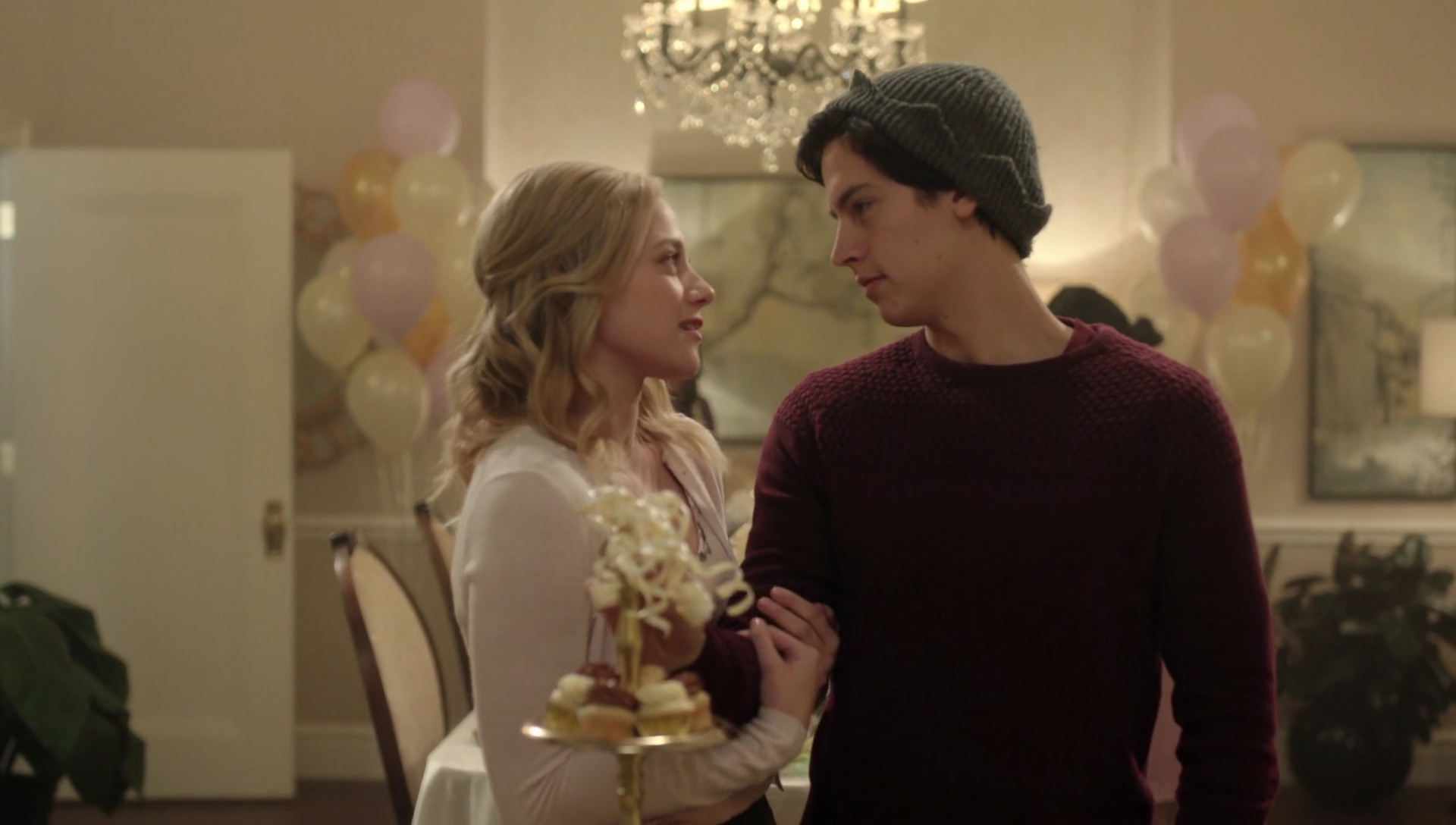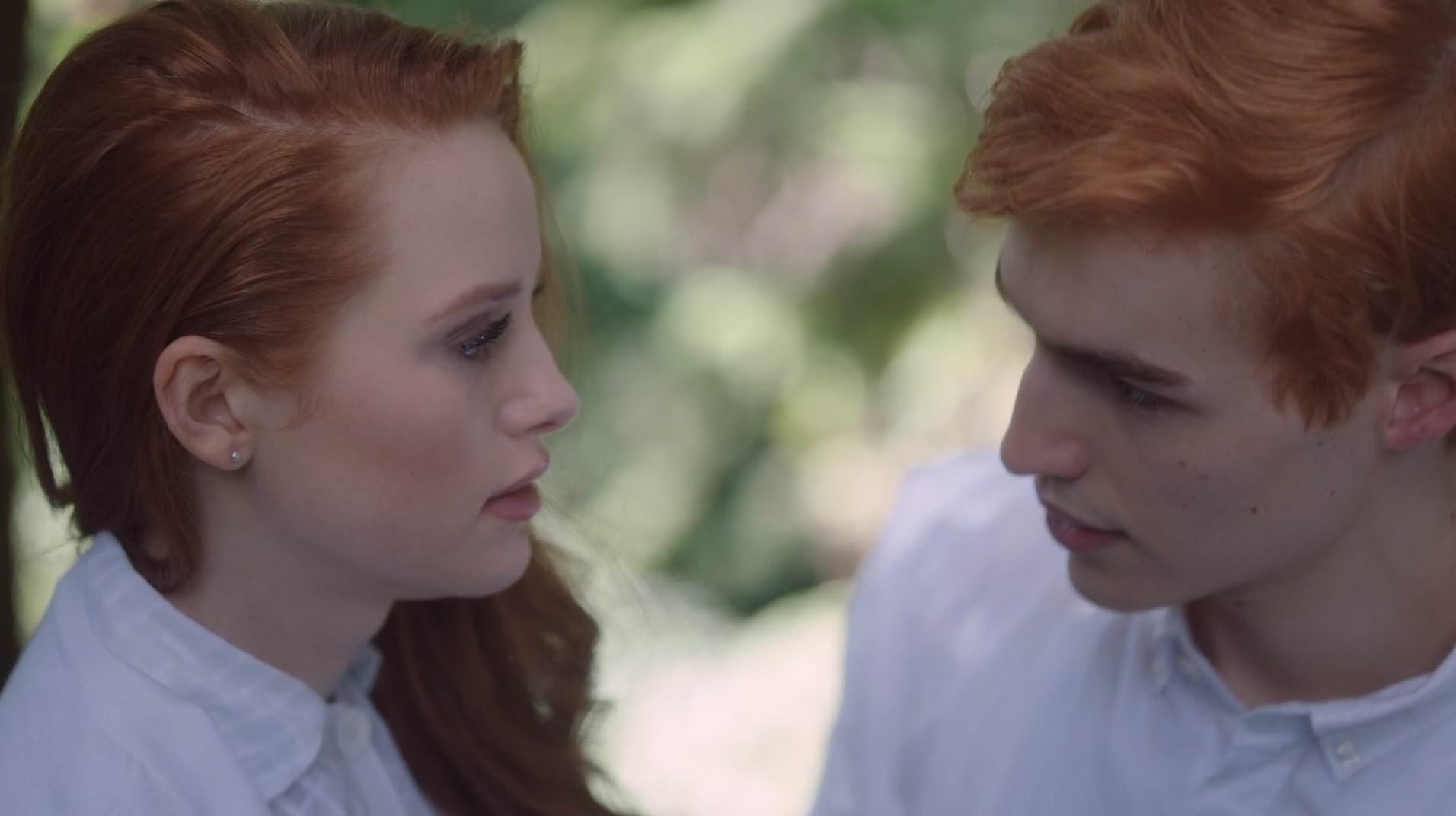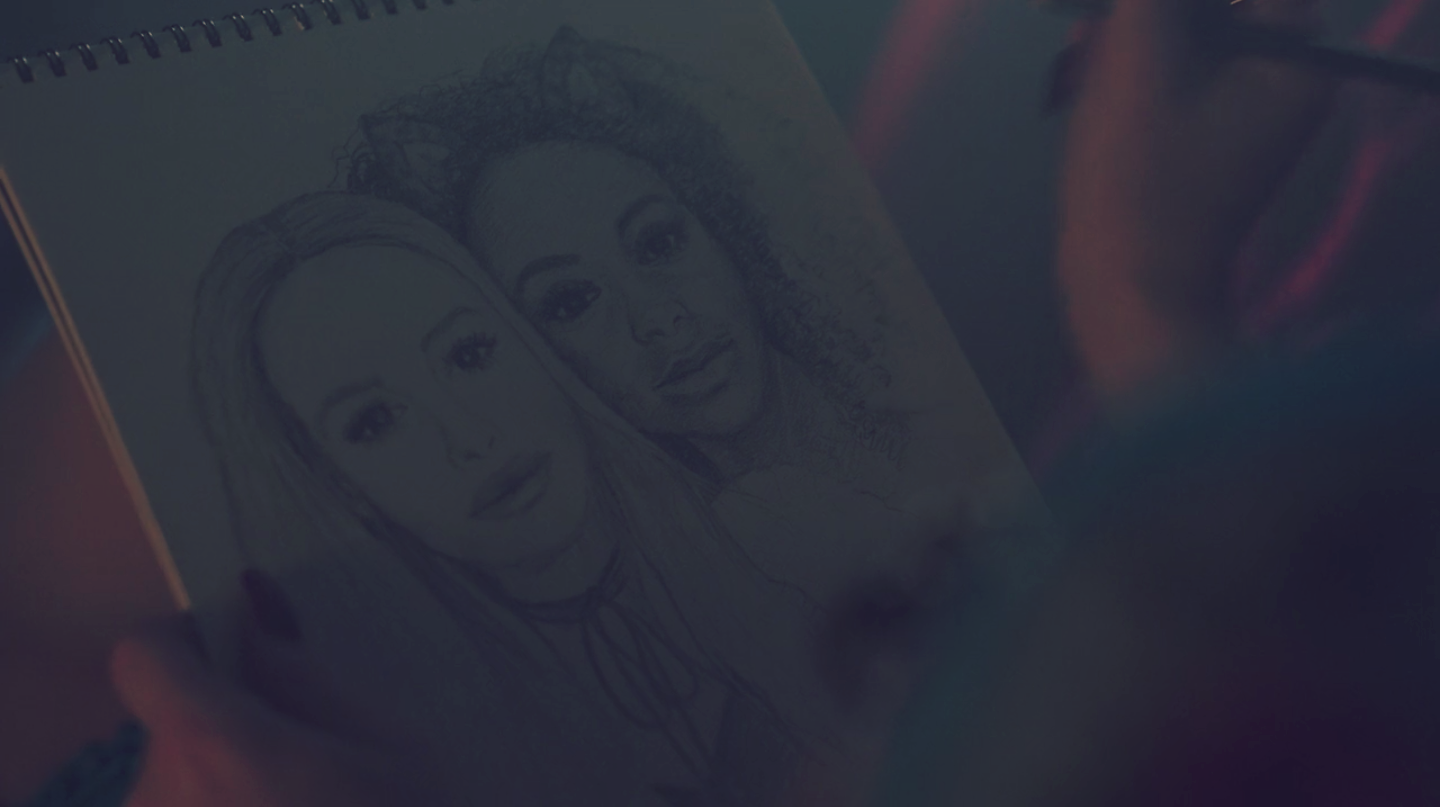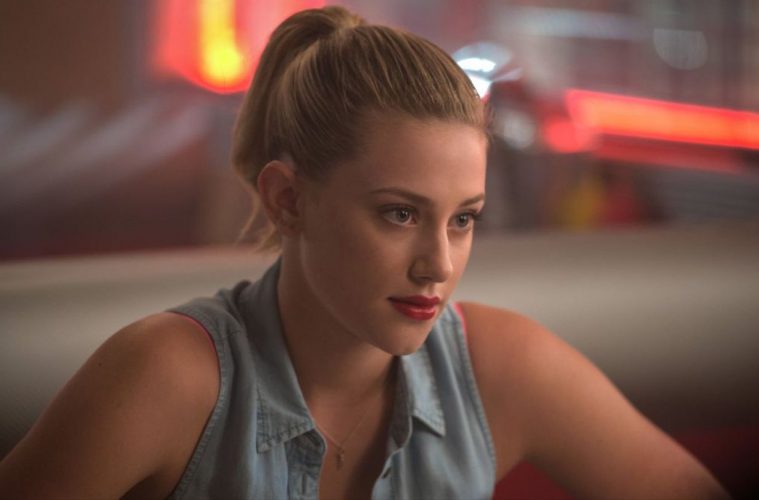Archie Comics were one of the first introductions I had to relationships and love. In them, I discovered a double-edged attachment to Betty and Veronica, who are designed to be looked up to, but who also frustrated me with their choices. They’re beautiful and strong-minded, but they constantly squabble over their desire for Archie’s attention. Betty and Veronica are alluring role models because they’re opinionated and not afraid to start a fight, but they’re just another example of Strong Female Characters being used to mask all other misogyny. Riverdale carries on this tradition and then some.
The show is part of a growing collection of teen TV and movie dramas that do this, and also serve as coming-of-age texts for young women (like the Twilight series or The OC). But the women of Riverdale are not your 1950s comic book future-housewives. Betty and Veronica don’t fight for Archie’s attention in competing bikinis. Instead, we have women who take issues of male harassment into their own hands and daughters who stand firm against their powerhouse families.
Still, all this kickassery falls a little flat when you dive further into the relationships of Riverdale and how they contrast the feminist actions of its characters. This essay will look at the love lives of three women in Riverdale and how they both aid and undermine feminism, leading to a constant cycle of hot and cold in their love. The show operates in a dangerous space between feminism and misogyny. For both the characters of the show and the viewers, this makes for a problematic learning ground for love.
Betty and Jughead

Photo: Riverdale Wiki
The iconic relationship between Betty and Jughead prospers while they’re on the trail of Jason Blossom’s murderer. Betty is feeling afraid and vulnerable, and Jughead kisses her. Their relationship is strong when they are investigating something together, as Jughead is drawn to Betty when she’s on a relentless pursuit of the good. It’s the opposite for Archie, who thinks that Betty is “too good” for him, “too pure.” This is an important example of how women are often framed through the lens of their male companions.
Betty and Jughead’s first fight happens at Jughead’s birthday party. During his tirade about the party that he didn’t want, he says that they can’t be together because she’s “the perfect girl next door.” This perception of Betty has never bothered Jughead before, but it bothers him now because she’s pushing that side onto him. Betty wants Jughead to have a perfect birthday with his friends and also hopes to aid Jug in reconciling with his troubled father. He’s fine with Betty’s perfection, until she tries to bring him into it. He prefers to be an observer. The fight is short-lived and they soon reconcile at Pop’s diner, where Betty exposes a bit of her darkness to Jughead. She doesn’t tell him what happened with Chuck in the hot tub, but she tells him she’s afraid of her darkness – what we’ll come to know as “Black Betty” – and he embraces her for this.
Another key moment for team Bughead is their second, more explosive break up. Jughead is now a member of the Serpents gang and Betty has grown to accept this side of him, even the darkness that comes with it. Betty decides to do the “Serpent dance” for Jughead, to show that she is devoted to being a part of his new world. The Serpent dance is what women must do in order to be a part of the gang, an action that is dismissed as “misogynistic,” but happens anyway. Betty does the dance in a black one-piece, and clearly enjoys doing it. We know because of her expression when first presented with the idea and because of the way she practices in the mirror earlier in the day. This dance is as much for her as it is for Jughead. It’s not the hidden alter-Betty that we’ve seen before. It’s not her admitting quietly what she did with Chuck, and feeling bad about it. This is Black Betty being proud of who she is and what she is doing with her sexuality, and the result is the biggest blowout in Bughead’s relationship yet.
Jughead wants to protect Betty. He doesn’t want her to get hurt and he doesn’t want her in the Serpents. In the end, he doesn’t want Betty’s perfection to be compromised. But in Riverdale, reconciliation isn’t ever far behind. Betty quickly hides away Black Betty again. She discovers a more secret way to indulge in her darkness (web-camming with strangers, as taught to her by her long-lost brother), and jumps back into being the Betty that saves the day. She uses her sleuthing skills to help solve a problem for Jug, and the Bughead dream team is saved.
Veronica and Archie

Photo: Riverdale Wiki
As we learned earlier, Archie isn’t the type of man to go for the “good girl,” so he falls for Veronica, the sly but good-hearted daughter of the ultra-rich Mr. Lodge. V and A first get together when Veronica is stressing about her family. She’s worried that her parents are up to no good and that deep down, her dad is evil (and possibly her mom, as well). This is a key moment because it reveals that despite her sometimes devious nature and history as a self-proclaimed “bad girl,” Veronica is good and desires good in others. This is important to understanding Veronica’s feminism.
Veronica wants to be a part of the family business. She wants a “seat at the table” but doesn’t want to be her parents, who are willing to crush almost anyone to build their business. Lodge Industries is a bastion of the patriarchy, not just because Mr. Lodge is in charge (and clearly Veronica’s mother takes a lot of cues from him, even fears him), but because it is a business built upon power over the powerless. Veronica doesn’t want things run in this way. She wants in, but on her own terms. Nothing illegal. No “hurting people.” This is the Veronica that Archie loves. A strong, powerful woman who is still a pillar for the good. She is the portrait looming above Mr. Lodge’s desk that he says keeps him honest.
A key scene in the A and V story is when Archie comes home to see the Lodges, his dad, the sheriff, and the mayor engaged in an important business meeting. He even invites himself to sit down and take part, but Mr. Lodge tells him that it’s already over. Veronica is at the head of the table in the scene – a position of power – and Archie doesn’t want her there alone. He fears for the loss of her purity, and doesn’t see that she is fighting for her feminism.
So, Archie buddies up with Mr. Lodge, takes on an internship, and even gets invited to a poker game – something Veronica is never privy to. Mr. Lodge still shields her from the darkness, and so does Archie. They are afraid of what she could become without their protection. And perhaps Mr. Lodge fears that she’ll overthrow the patriarchy that he has built up. The desire to preserve Veronica’s purity drives her relationship with Archie. If Veronica were to go full dark side, Archie would want nothing to do with her, but if she were to go full good girl, à la Betty, this would also diminish his interest.
Cheryl and her family

Photo: Riverdale Wiki
Cheryl Blossom doesn’t have much of a love life in Riverdale. But she does have a love, and that is the love for her brother, Jason. Cheryl’s feminism is one of the most interesting aspects of the show. She is not very “good” and she doesn’t seem that driven to be a part of the family business, either. In fact, a lot of what Cheryl really “wants” is hidden most of the time. The one thing we do learn is that she is quite possibly unhinged; the hysterical, raving female, too unhinged to take over the family business, too unhinged to have a boyfriend, and obsessed with her dead brother. Every step she takes towards or against this stereotype affects her family relationships.
The Blossom family business is drenched in the sticky sweet syrup of the patriarchy: a male head of the family, who hopes to groom his son, stepping on less powerful people along the way. So it’s no real surprise when Mr. Blossom tells Archie that Cheryl needs a stable man by her side in order to be taken seriously.
The mistrust of Cheryl’s family and her instability make her the perfect choice for the centre of a series of events that truly hammer home the fear of feminism running through Riverdale. It all happens when Cheryl is drugged and almost raped by Nick, an old friend of Veronica’s. Thankfully, she is saved by the Pussycats, who storm into the room, shove Nick off, and deliver a merciless beating with high-heeled shoes. It’s a glorious, power-female moment that has you believing for a second that feminism is the beating pulse of this show.
But hold on to your pussycat ears, because the aftermath of this incident is a fear-of-feminism triple-decker pancake, loaded with maple syrup. First, Cheryl’s mom doesn’t believe her. She falls back on the tried and trusted method of claiming “Cheryl’s a lunatic” to divert blame and take money from Nick’s family. (“After all, nothing really happened to Cheryl,” says Mrs. B.) This leads to a rift and, later, a reconciliation in Cheryl’s love with her mother.
Second, Cheryl becomes obsessed with Josie, who helped save her. She leaves Josie cryptic notes and draws her portrait in secret. It’s a disheartening look at how the fear of feminism can slide into the fear of lesbianism, as Cheryl’s obsession is portrayed as something to be feared and hidden. It also causes a spark of love between Josie and Chuck (yes, that Chuck), and later leads to a fizzle in that same spark.

Photo: Shipping Wiki
Third, after the Lodges discover that Nick also went after Veronica, they launch a vengeful attack that results in a terrible injury for Nick. This move turns Nick’s evil on its side, making him a victim, and he is later beaten by Archie while injured. This scene is another notch in the history of Archie protecting Veronica when she doesn’t want or request protection. And so, the union of women saving women is torn apart, and relationships are formed and fizzled along the way. Riverdale can’t have clean feminism. It needs to be messy.
The show may be different from the comics, but there’s a lot more in common here than just ponytails and Pop’s. Because let’s face it, Betty and Veronica were never subservient, even in the comics, but they still needed Archie. They needed him like Betty’s dark side needs to be hidden, like daughters in control must be monitored and managed, and like women saving women can’t happen without consequences. Riverdale needs these things because it can’t have clean feminism. It’s a feminism that drives male desire and a feminism that drives romantic conflict, showcasing the dangerous perception that feminism is problematic.
Shows like Riverdale captivate the interest of women and young girls with the appearance of feminine strength, but backpedal when it comes to dealing with the results. The women of Riverdale can never be content, just as comic-book Archie will never decide between Betty and Veronica. Both cycles need to keep going, but hope remains that feminism will also maintain its cyclical return.

